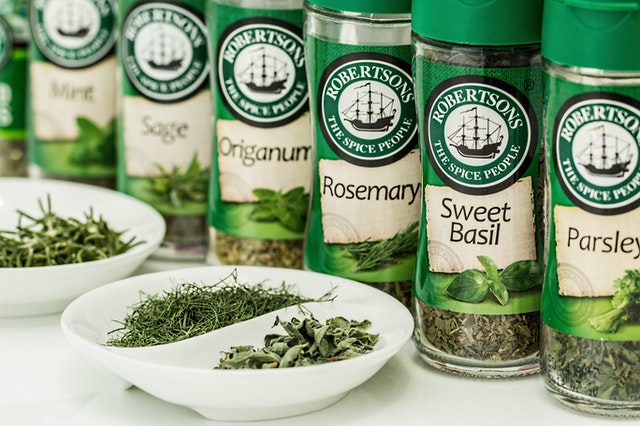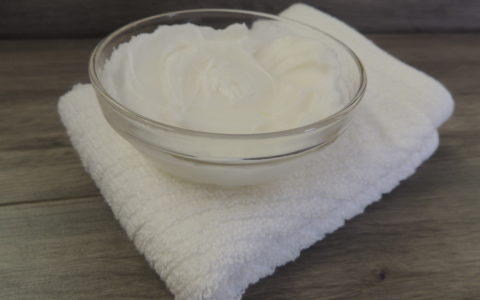
The rosemary plant is one of the most popular medicinal plants in the world, as well as a healing herb with a very long history of use in places including Italy and Greece, dating as far back as at least 500 BC.
According to an article published in Nutrition Today:
The genus name Rosmarinus is derived from the Latin “Dew of the Sea” and has traditionally been associated with remembrance, love, and fidelity… For centuries, this plant has been an ingredient in folk medicines with associated claims for relief of such diverse symptoms and conditions as dysmenorrhea, mental decline, epilepsy, pain relief, and infertility.
Recent research has shown that whether consumed as an essential oil, tea or seasoning, rosemary benefits can include promoting digestive health, mental clarity, hair and skin health, relaxation and more.
What Is Rosemary?
Rosemary is a herb that grows on the evergreen shrub known as Salvia rosmarinus (formerly Rosmarinus officinalis). The rosemary plant is native to the Mediterranean region and has been used in cooking and herbal/folklore medicine for thousands of years.
Today it grows across Asia, America and Europe.
How is rosemary used? It’s most often used for culinary purposes, including adding earthiness and other flavors to recipes. Additionally, it has many therapeutic and household uses, including making herbal teas, candles, perfumes, hair care products and more.
This herb has a strong smell and taste, and it is also packed with antioxidants, volatile oils and other protective phytochemical compounds. Rosemary’s taste is described as warm and somewhat bitter.
It’s in the same plant family as mint (the Lamiaceae family, which consists of more than 7,000 species), yet doesn’t have the same distinct menthol flavor.
The rosemary plant is also the source of concentrated rosemary essential oil, which is used to help relieve conditions including pain, inflammation, gastrointestinal pains, anxiety and respiratory issues. The essential oil of rosemary has been found to contain many protective compounds, including:
- cineole
- camphor
- α-pinene
- borneol
- rosmarinic acid
- rosmanol
- carnosol
- carnosic acid
Rosemary Benefits
What is rosemary good for? Aside from having a pleasant fragrance and taste, this herb is a good source of anti-inflammatory and antioxidant compounds, as well as essential nutrients including iron, calcium, and vitamins A, C, and B6.
Here are some of the top rosemary benefits and uses:
1. Provides Antioxidants
Because of its rich supply of antioxidants and bioactive chemicals (including phenolic diterpenes, such as carnosol and caffeoyl derivatives), consuming rosemary can help fight oxidative stress and support the immune system. It’s also known to promote healthy circulation and to defend against inflammation, which can lead to pain.
Another way that rosemary’s antioxidants can be beneficial is due to the ability to promote skin health by fighting free radical damage that leads to signs of aging.
2. Can Help Lift Your Mood and Boost Alertness
Like some other herbs in the mint family, rosemary’s smell is considered a “cognitive stimulant” and can help make you feel more awake and focused. Some studies have also shown that compounds within rosemary/rosemary oil have neuro-protective effects and the ability to improve memory and cognitive performance by preventing the breakdown of acetylcholine, a chemical in the brain that contributes to concentration and memory retention.
Additionally, the uplifting and energizing aroma of rosemary has been linked to improved moods, reduces drowsiness and reduced stress levels, including due to its ability to decrease release of the “stress hormone” cortisol. This is the reason you’ll find rosemary in some candles, home sprays, aromatherapy oils, etc.
3. May Help Stimulate Hair Growth
Rosemary (most often in the form of rosemary oil) is found in some hair care products intended to help promote hair growth and a healthy scalp, since it can fight against dandruff and skin irritation that causes dryness. It may also decrease the effects of testosterone on hair follicles, which can lead to hair loss and balding/thinning.
4. Helps Relieve Indigestion
This herb, whether cooked with or steeped in herbal tea, has long been a natural remedy for digestive issues, including loss of appetite, heart burn/acid reflux, gas, bloating and abdominal pains. It seems capable of stimulating the release of digestive fluids including bile, which assists in digestion and can support normal nutrient absorption.
5. Has Natural Antimicrobial Properties
Within rosemary there are compounds that can help defend against proliferation of certain types of harmful bacteria, including those that contribute to infections. Rosemary extracts are even used as food preservatives in some cases because they can help stop bacteria from growing.
The smell of rosemary also acts as a natural bug repellent and may help prevent certain insect bites, including from ticks and other bugs that can spread illnesses and viruses.
6. Can Help Promote Metabolic Health
Rosemary has been associated with metabolic benefits including helping to treat high blood sugar and poor insulin sensitivity. While it likely won’t be enough to prevent diabetes on its own, it’s recommended for people who wish to improve their high blood sugar levels.
How to Use (Recipes)
The rosemary plant is used extensively as a culinary spice around the world. Here are some examples:
- It’s made into herbal tea to promote digestive health and relaxation.
- It helps season meats in the cuisines of Europe and the Middle East.
- It’s often found in marinades for lamb, pork, turkey and chicken dishes.
- Rosemary leaves are added to soups and beverages in India for their flavor and nutrient content.
- Whether dried or fresh, it’s added to stews, casseroles, fish, potatoes, salads, pastas, and breads in many European countries.
- The Spruce Eats recommends also pairing it with grains, mushrooms, onions, peas and spinach.
Can you eat fresh rosemary? Yes, although it’s typically cooked with or steeped to make herbal tea.
If you have fresh sprigs of rosemary, you can prepare the herb by first rinsing it with water and then removing the sprigs from the woody stems before chopping them finely. Another option is to use whole sprigs, which can be added to stews and meat dishes, then removed before serving.
Dried herbs can last for many months when stored in a sealed container. To store fresh rosemary, wrap the sprigs in a damp paper towel, and put them in a plastic bag in the refrigerator.
How do you make rosemary tea? Can you drink rosemary tea every day?
- To make rosemary herbal tea, combine 1 teaspoon of chopped herbs (preferably fresh) with 8 ounces of water.
- Steep the herbs for 5 minutes or longer, depending on the strength you’re looking for.
- You can also add other herbs and flavor enhancers, including lavender, thyme, parsley, lemon juice or raw honey.
- Consuming about 1–2 cups daily is safe for most, although use caution if you take any medications (see below).
Can you consume rosemary oil?
This essential oil should not be taken internally, but it is safe for most people to use topically on the skin or to inhale via aromatherapy. Avoiding putting it on open wounds, and get your doctor’s opinion about using it if you’re pregnant.
Where does rosemary grow best? It grows best in full sun (at least six hours daily of sunlight) in locations with well-drained soil, whether it’s a garden bed or large pot.
It’s a perennial herb and will grow back for several years, most often from the spring through fall. It’s somewhat drought-resistant and can also withstand slight freezing temps.
Some of the varieties most often grown as culinary herbs include blue boy, Spice Islands and white rosemary.
Drug Interactions, Risks and Side Effects
When rosemary is consumed in usual culinary amounts, or as an approved food additive, is considered generally safe, according to the U.S. Food and Drug Administration. When consumed in high amounts, especially as an essential oil or extract, it can potentially cause some side effects, such as an upset stomach, vomiting, spasms or changes in blood pressure, although these reactions are rare.
Rosemary essential oil has been recognized by the FDA as generally recognized as safe for its intended use as a food additive. Rosemary extracts have been used for more than 20 years in the food industry as both a flavoring agent and preservative, but it’s possible for some people to experience allergic reactions to rosemary in rare cases.
If you’re allergic to other herbs in the mint family, avoid consuming rosemary, and be careful about applying products that contain rosemary essential oil.
Rosemary has the potential to alter urination, blood clotting and blood pressure levels, which means it can potentially interact with certain medications and should be avoided in these cases. Speak with your doctor before adding large amounts or rosemary or this essential oil to your diet if you take these drugs:
- Anticoagulants/blood thinners
- ACE inhibitors for high blood pressure
- Diuretics
- Lithium for mental health disorders
Conclusion
- Rosemary is an herb that’s native to the Mediterranean that has long been popular in folk medicine. It can be cooked with, used in herbal tea or used to make essential oil that has many therapeutic applications.
- Rosemary benefits include helping provide antioxidants and other nutrients; improve your mood, focus and memory; promote hair growth; relieve inflammation and pain; and defend against growth of some bacteria and insect bites.
- Ideas for rosemary recipes include making herbal tea or adding some to roasted turkey or chicken.
















